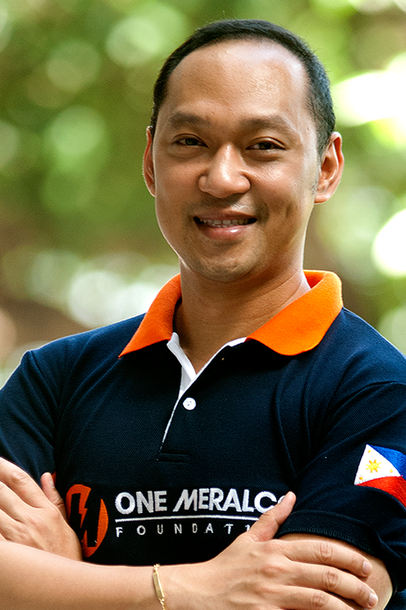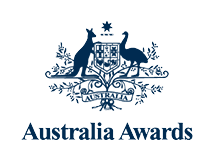Shining a Light on Sustainability
 After being born in a hospital charity ward, he was brought home to a 42 square meter house—the driver’s quarters in a rich family’s home where his father worked. For the next 28 years, he lived in that small space, barely big enough for his family of five, attending an exclusive all-boys’ private school as one of the benefits granted by his father’s employer.
After being born in a hospital charity ward, he was brought home to a 42 square meter house—the driver’s quarters in a rich family’s home where his father worked. For the next 28 years, he lived in that small space, barely big enough for his family of five, attending an exclusive all-boys’ private school as one of the benefits granted by his father’s employer.
“All my classmates came from well-off families and I never invited any of them to visit my house. They would point to the rich family’s big house and ask, ‘is that where you live?’ I would tell them yes, not telling the truth that we actually lived behind that structure, in what I referred to as ‘the dungeon’,” he mused.
Through challenges and roadblocks
He continued studying at the private school with his benefactors’ help until he reached his second year of college. “I was already studying a communications course at a university, when my father’s employers had to cut their tuition support. Little did I know that my mother had started to incur big debts to further my studies,” he shares. “I was too concerned about school that I only found out about it after I graduated.”
Even when he found work at a telco company and rose through its ranks, they continued living in the driver’s quarters because they had to pay off debts.
Finally, it seemed that things are finally going well so Jeffrey took a short break to visit relatives and take a short professional development course in the U.S. when he was again given a huge blow. His father’s employers were selling their property and his family needed to move out immediately. “I was vacationing in San Francisco, and little did I know that my parents were already looking for a new place to live.”
The family had to live with relatives before Jeffrey was able to save enough for a down payment on a new home.
These were all difficult times for him, he says. Nevertheless, they are the memories that fill him with gratitude as he looks back at how far they have come as a family.
Creating an impact and paying it forward
In 2011, Jeffrey was offered a position in Meralco, the country’s largest private sector electric distribution company. “I never thought I would become its Chief Corporate Social Responsibility (CSR) Officer and at the same time, the President of the Meralco Foundation,” he said.
“The company was undergoing massive transformation under a new ownership at the time and I saw how I could add value and redesign the programs in order to have a bigger and–this being an electricity provider–brighter impact on communities,” he grins.
He knows how integral electricity is, which is why he says 70% of their projects are about electrification of communities, particularly public schools in far-flung areas. He says that faces of teachers and students “light up” when they experience having electricity for the first time.
He likes going around the project sites to see this for himself. “I guess, it comes from that part of me where I have struggled with my own challenges. It’s a warm feeling, being able to give back.”
A step back to move forward
He heard about Australia Awards through a friend who was an alumni of the program and it caught his interest. With the idea of giving back and creating a bigger impact in mind, he applied to the scholarship and was accepted to be part of the 2017 intake.
His one year stay in Australia helped him develop his skills towards bringing about transformative change. “I am very clear about my mission in life, which is to be a facilitator of growth—whether it is in the organisations I work for or with the people who work with me.”
Jeffrey took up Masters in Sustainable Development at the Macquarie University because he felt that this was needed in the Philippines. He also enrolled in a technical course on sustainability reporting–or reporting on the economic, environmental and social impacts caused by the organization’s everyday activities–an expertise which he also felt was lacking in the country. “I was so fortunate to have learned so much from experts with new ideas and different experiences, and that is something you rarely get for free in the Philippines. I was very lucky that all my professors were practitioners and legends in their fields!”
His Re-Entry Action Plan or REAP is on sustainability reporting and how it should be standardised according to formal sustainability measures. “We are already doing it at Meralco, but not in the way other companies are doing it. Further on, it will also help smaller cooperatives with their own reporting. The end goal is to show that it is not just a series of reports given to the CEO but a tool to empower more leaders of organisations to take responsibility about sustainability.”
His takeaway from his studies: growth has boundaries. “This was not taught to us in school. What was taught is that you can always grow–but the planet has its own boundaries. There are those who will be impacted positively or negatively by continuous growth, so we have to manage ourselves and find out if we are already abusing our resources. These are leadership decisions and we need to develop strong leaders within ourselves and across society.”
Jeffrey is also thankful for the Australia Awards because it allowed him to take a step back from what he was doing at work. “Sometimes, my calendar gets so overwhelmed with appointments, that it just becomes a matter of checking off all the to-do lists. In Australia, I was able to reflect on what I was doing and where I was going. These reflections, combined with all my learnings, have helped me shape a new approach to development. Environment was not my strongest specialisation as I was always on the socio-economic side. Now, I see the environmental side of things, not only with my job at Meralco, but also in my lifestyle.”
It is because of his background that Jeffrey finds his work fulfilling. Through the Foundation, they have provided electricity to 223 schools and are targeting to add two more by the end of 2018. “Numbers can only tell your output in a statistical sense. But when you receive an email from a teacher, instead of snail mail, you see progress coming into the community.”
He adds that even though he does not have to go on site visits with his team, he will never tire of being on the ground and talking to people to help find ways to improve their lives. It is his way of giving hope to schoolchildren and helping them achieve their own dreams – by lighting their way.

